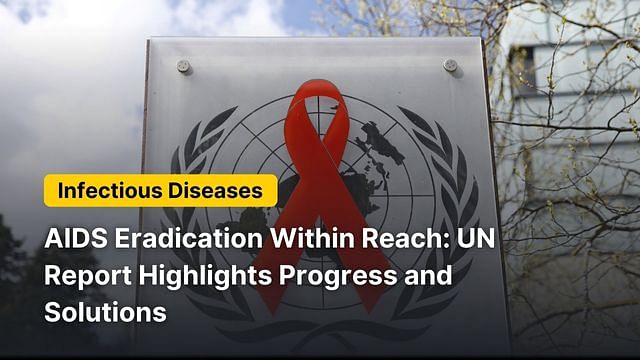AIDS Can Be Ended by 2030, UN Says
15 Jul 2023 • It is possible to end AIDS by 2030 if countries demonstrate the political will to invest in prevention and treatment and adopt non-discriminatory laws, the United Nations said on Thursday. In 2022, an estimated 39 million people around the world were living with HIV, according to UNAIDS, the United Nations AIDS program.
"We have a solution if we follow the leadership of countries that have forged strong political commitment to put people first and invest in evidence-based HIV prevention and treatment programmes," UNAIDS said in a report published on Thursday. Last year, 1.3 million people became newly infected with HIV and 630,000 died from AIDS-related illnesses, according to UNAIDS.
- Progress has been strongest in the countries and regions that have spent most on tackling HIV/AIDS such as in eastern and southern Africa, where new HIV infections have been reduced by 57 per cent since 2010.
- Following support and investment to end AIDS among children, 82 per cent of pregnant and breastfeeding women living with HIV globally were able to access antiretroviral treatment last year – up from 46 per cent in 2010.
- New infections among children have fallen by 58 per cent during the same period, the lowest number since the 1980s, UNAIDS reported.
- The number of people on antiretroviral treatment worldwide rose nearly fourfold, from 7.7 million in 2010 to 29.8 million in 2022.
There is a clear path to ending AIDS by 2030 and it requires strong political leadership, following the science, tackling inequalities and ensuring sustainable funding. That’s the message from UNAIDS, the UN agency dedicated to ending the epidemic, which said on Thursday that truly eradicating it boils down to a “political and financial choice”.
Source: UN | Read full story
